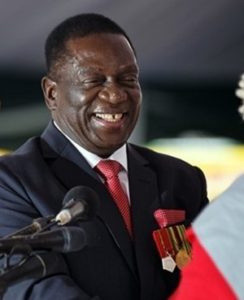In all this, the government led by former President, Robert Mugabe has been slow and sometimes non-responsive notwithstanding existing local community, parliament and cabinet resolutions on how to resolve the Chisumbanje ethanol conflict.
Having realised that the community is now approaching another farming season for the 2017/2018, an agreed intervention strategy was on demand. The current status is that the land and boundary dispute as well as issues of compensation and beneficiation are still outstanding for close to a decade now.
There exist two communities one that is popularly constituted and another that is driven by the interests of the investor and bent on protecting the investor unconditionally. The strategic retreat was mooted to consolidate these opposing views and come up with consensus on areas of advocacy and programming to ensure the affected and displaced communities benefit from the operations of the Chisumbanje ethanol project.
The first resolution made and unanimously agreed was to write a letter to the new leadership of President Emmerson Dambudzo Mnangagwa. The letter will serve three objectives, the first being to extend congratulations on his ascendancy to the Presidency.
The communities noted that, the new President Mnangagwa has pledged through his inauguration speech, to pursue a direction that is determined to deal with corruption, a direction that seeks to review the indigenization law to ensure the nation gets the much needed foreign direct investment, a direction that improves the work ethics of the central government in terms of implementing government policies.
The resolution to write the letter was guided by the need to share with the new President, the outstanding and pending interventions made by government through parliament and cabinet. The letter will also request President Mnangagwa, to visit Chisumbanje and have the privilege of interfacing with the affected farmers and hear their concerns and suggestions on how they wish to co-exist with the ethanol project. It is anticipated that the President will be able to assist with the outstanding issues such as boundary clarifications, the establishment/endorsement of an all stakeholders committee, outstanding compensation issues, beneficiation model between the communities and the Investor and other issues related to human rights abuses.
The second resolution was to confirm and reiterate with vehemence that engagement and dialogue was and will always remain the first of the options when interfacing with government and the investor. Disappointment was expressed at the attitude of Green Fuel and the local government, in particular the office of Chipinge District Administrator.
The office of the DA has frustrated community efforts to use dialogue and peaceful means. Unresolved and emerging issues arise from the fact that there has been no clarity on the relationship of government and the investor. The lack of clarity has led to the affected communities feeling neglected, exposed and weakened to negotiate for beneficiation. The Investor has been operating without close monitoring from central government therefore dictating terms and conditions. The community resolved to do everything to re energise the relationship between them and key stakeholders such as Chipinge RDC, Agricultural Rural Authority, District Administrator in Chipinge, Chipinge Agricultural Extension department, Platform for Youth Development, traditional leadership, Ministry of Agriculture, Green Fuel as well as the President of Zimbabwe among important stakeholders.
The third resolution was made to deal with the scenario that will emerge in case of no positive intervention from the letter written to the President and by central government on the outstanding issues.
The communities resolved to be guided by consensus to adopt non violent means that are peaceful but meant to send a strong message to Green Fuel and the government of Zimbabwe that there is a cost for not talking. Activities of the resistance and non-cooperation with Green fuel will be unfolded from early December 2018, only if there is no positive intervention.
The fourth resolution was that, the communities in Chisumbanje and Chinyamukwakwa will continue operating with the popularly elected structures of Robinson Nyakurwa, Cannias Ndimandi Chisumbanje, Leonard Uchaka Muyondozi and Wedzerai Gwenzi from Chisumbanje and Jerry Moyana, Memory Zvinongoza and Elias Chikope from Chinyamukwakwa.
Green Fuel has not shown any respect for the community leadership preferring to rely on either their handpicked or highly political persons who are partisan. The communities agreed to resist taking instructions and orders from such unofficial structurers.
The fifth resolution was to continue recognising the leadership provided by Platform for Youth Development in providing direction through important local, national and international networks. Platform for Youth Development has been with the community since the start of the land dispute and has shown consistency and determination in amplifying the voice of the subdued community.
Through the leadership of PYD and Claris Madhuku, the community has benefitted from other national level civic society organization like the Transparency International Zimbabwe (TIZ), Zimbabwe Lawyers for Human Rights (ZLHR), Zimbabwe Environmental Lawyers Association (ZELA), Catholic Commission of Justice and Peace (CCJP) as well as Fund for Development in Africa.
These partners have been instrumental in popularising the community strategy for co-existence and peaceful engagement with the government and the Investor and the communities felt, PYD is better placed to take a leading role in any engagement with all parties involved in the land conflict including the new administration of President Mnangagwa.



